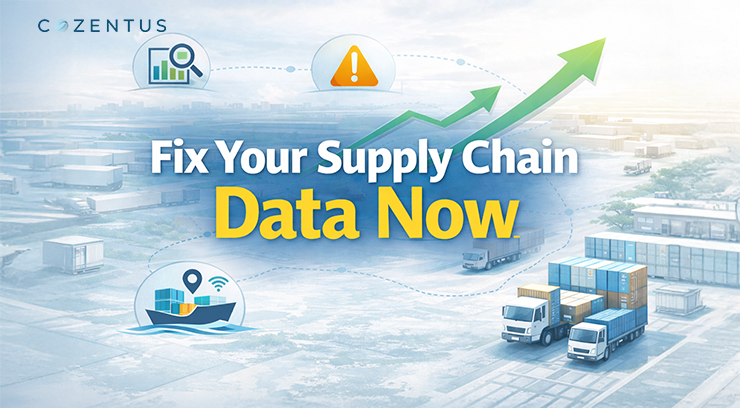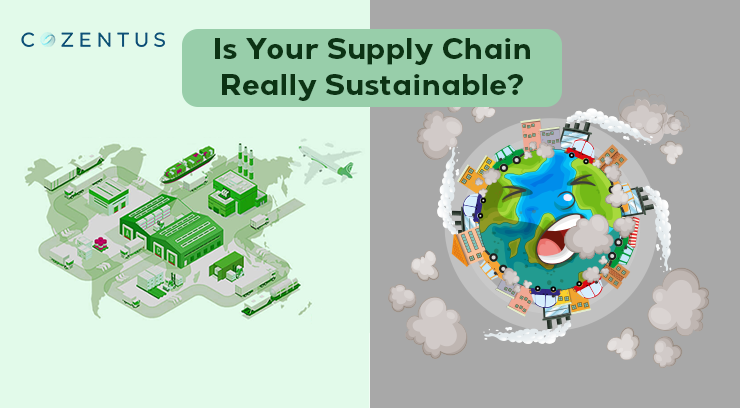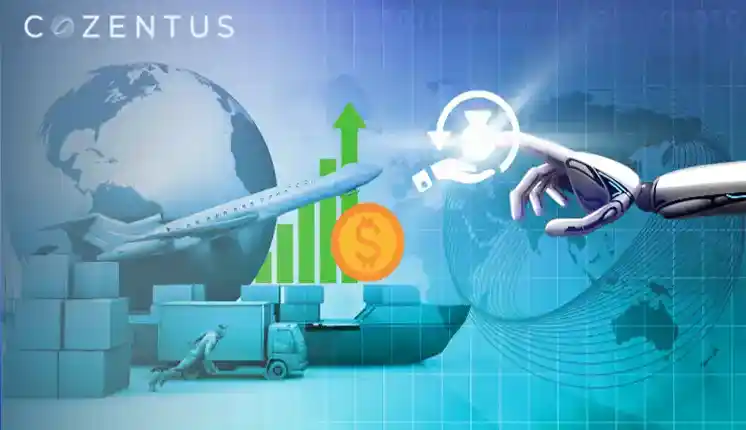
Is your supply chain looking to incorporate artificial intelligence (AI)? Then you are not alone.
Innovative technologies like machine learning (ML) and artificial intelligence (AI) present some great opportunities in a highly competitive market where companies are always looking to improve profit margins, save expenses, and provide remarkable customer experiences.
According to a research, 37% of businesses including supply chain organizations, are reportedly already benefiting from AI solutions. By 2030, AI is projected to add $15.7 trillion to the world economy. Thus, AI in supply chains appears to have a bright future and several advantages.
In this article, we will explore more about AI and ML in supply chains and how it benefits various businesses.
AI-Driven End-to-End Supply Chain Transparency
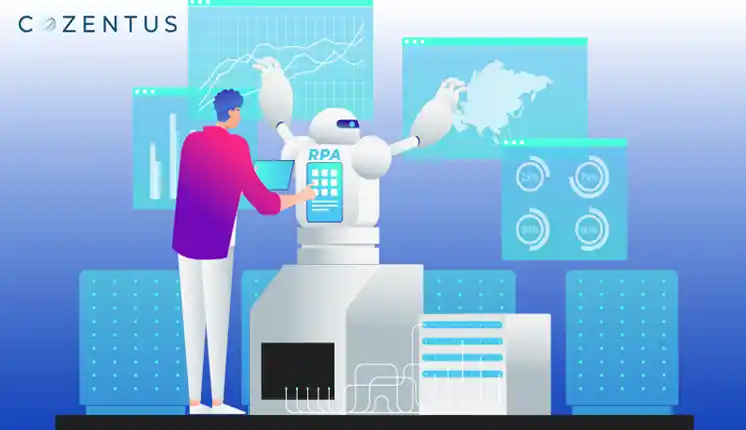
The difficulty, connection, and size of today's supply chains have made it challenging for manufacturers to maintain an overview of the entire process of resources and items entering their facilities.
AI-driven supply chain management (SCM) solutions perform better than conventional ones when it comes to tracking massive volumes of supplies in real time as they move through interim manufacturing and distribution partners to become final goods. Improved traceability and visibility may help manufacturers in identifying suppliers who are violating ethical or quality buying guidelines.
As a result, AI & ML applications can save time and cost by improving supply chain transparency. Additionally, it helps manufacturers in meeting the expectations of authorities and a large number of customers by ensuring that the components they employ to create their goods are sourced in compliance with ethical, quality, and environmental standards.
Top 5 Benefits of AI/ML in Supply Chain Management
The application of AI & ML in supply chain management offers several opportunities that support both strategic advantage and operational excellence. The following are some main advantages:
1. Streamlined Operations and Process Automation
Artificial Intelligence and machine learning can be used to automate repetitive and routine supply chain procedures. These technologies can manage many tasks that used to be done by hand, including order processing and inventory control.
Robotic process automation (RPA) is one major application of AI in SCM. RPA bots can execute tasks like data entry and order monitoring invoice processing fast and precisely. When ML algorithms are incorporated into these bots, they become more effective because they can learn from and adjust to new scenarios.
Case Study: Together with Cozentus, a global shipping firm transformed invoice processing with the use of robotic process automation (RPA). The exceptional transformation brought about by this collaboration included a 40% reduction in processing time and a considerable decrease in human errors.
2. Improved Transportation and Logistics Management
AI and ML have brought about changes in the way logistics and transportation management are handled. Advanced algorithms can optimize delivery routes, real-time weather, traffic data, and other factors. This guarantees less fuel usage, quicker deliveries, and less transportation expenses.
Delivery schedules can be changed in real-time to cater for unforeseen delays and last-minute modifications because of AI-powered dynamic routing. Additionally, fleet performance data can be analyzed by ML models to optimize maintenance schedules and increase the durability and efficiency of transportation assets.
Case Study: An e-commerce company effectively revolutionized its logistics operations through its partnership with Cozentus. The AI-powered logistics management solution improved customer satisfaction while simultaneously increasing productivity and cost effectiveness.
3. More-Accurate Inventory Management
To more precisely and effectively control their inventory levels, manufacturers are utilizing AI's capabilities. For instance, inventory data given by a downstream customer can be used by AI-powered forecasting systems to estimate that customer's demand. The manufacturers' demand projections will be modified by the system if it finds that customer demand is declining.
Thus, to organize goods in real-time and track warehouse storage capacity, manufacturers and supply chain managers are also increasingly utilizing computer vision systems, mounting cameras on supply chain equipment, racks, cars, and even drones. Ultimately, AI and ML-driven inventory management enhances operational agility, improves inventory turnover rates, and boosts customer satisfaction by ensuring products are consistently available when needed.
Case Study: A well-known retailer experienced a massive decrease in inventory costs after implementing Cozentus AI-driven demand forecasting system. Demand forecasting in supply chain management and business intelligence enhances supply planning, lowers the cost of maintaining goods at present, and boosts sales revenue when inventory management is optimized.
4. Enhanced Supply Chain Sustainability
AI has the potential to improve supply chain sustainability and reduce the adverse environmental impacts by increasing operational efficiencies. For instance, by optimizing truckloads and delivery routes to ensure that vehicles use less fuel while delivering supplies, ML-trained models can assist companies in reducing energy costs.
AI has the potential to reduce the waste of goods at several phases of the supply chain. To ensure a factory doesn’t overproduce, think about AI-driven production planning that examines historical inventory levels, current demand forecasts, and real-time machine maintenance reports. AI-enabled supply chain planning and sourcing tools can also assist suppliers to become more transparent and allow them to adhere to social and environmental sustainability guidelines.
Case Study: Cozentus predictive forecasting system empowered 3PL supplier to solve lead time prediction and inventory management issues. The company's business planning and forecasting accuracy significantly improved by combining historical data with sophisticated algorithms.
5. Optimized Operations Through Reduced Operating Costs
Repetitive operations including recording, monitoring, and documenting inventory can be accomplished with more accuracy and less labor with AI and ML. AI's ability helps to understand complicated behaviors and operate in unpredictable environments. Problems are additionally identified and mitigated. Artificial Intelligence has the potential to save operational costs in complicated supply chains by identifying inefficiencies and learning from recurring actions.
AI and ML can also save costs for distribution managers and manufacturers by minimizing equipment downtime. To minimize disruptions and the resulting financial losses, intelligent systems, particularly those that process data from IoT devices in smart factories, can detect faults and breakdowns in their early stages or anticipate them before they occur.
Case Study: Cozentus implemented IDP to automate data extraction and processing from a variety of document formats. The use of Cozentus technologies resulted in a 30% decrease in operating costs. These automated solutions, while lowering operating costs, boost accuracy, efficiency, and worker satisfaction.
Discover How Cozentus Can Help You Invest in AI and ML for Your Supply Chain
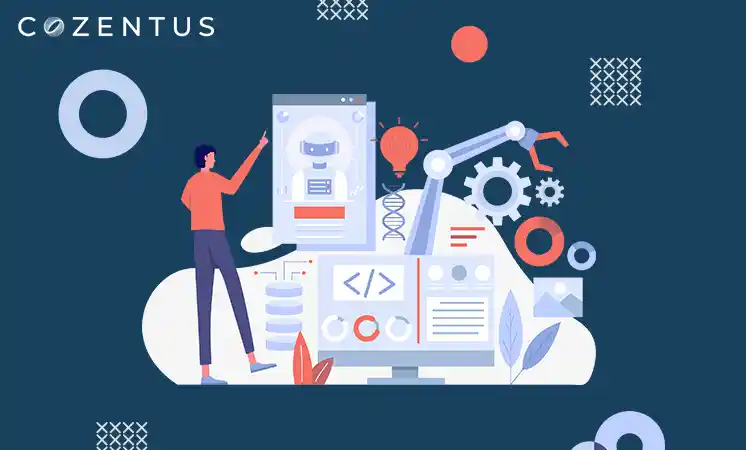
Cozentus is an expert in implementing AI and ML solutions into action that are tailored to your unique business requirements. We specialize in advanced Intelligent Document Processing (IDP), Robotic Process Automation (RPA), AI, and machine learning (ML) to optimize workflows and minimize human error.
Our AI-driven solutions enable data-driven decisions for improved operational efficiency. By leveraging continuous learning from your data, our ML models support proactive risk management and provide real-time insights, reducing operating costs, strengthening supplier relationships, and streamlining inventory management.
Read more to find out how analytics driven by AI and ML can optimize the performance of your supply chain.
Recent Post
Subscribe to our newsletter
Stay updated on latest trends and news in the supply chain and logistics industry
Join our mailing list for monthly updates
Download Reports
AI-Powered Intelligent Document Processing -Your Launchpad to Digital Transformation
Download
